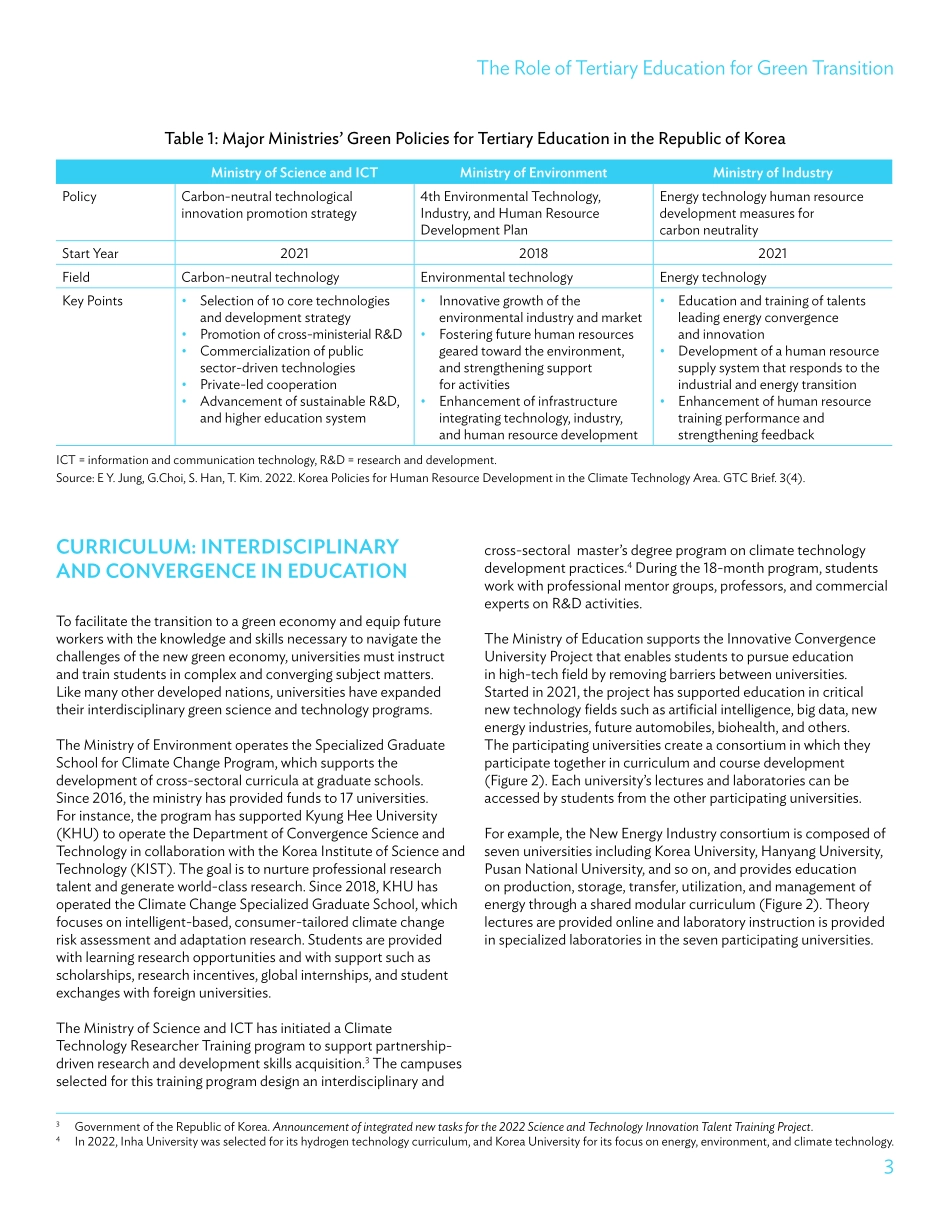ADB BRIEFSNO. 287DECEMBER 2023ISBN 978-92-9270-591-6 (print)ISBN 978-92-9270-592-3 (electronic) ISSN 2071-7202 (print)ISSN 2218-2675 (electronic)Publication Stock No. BRF240008-2DOI: http://dx.doi.org/10.22617/BRF240008-2The Role of Tertiary Education for Green Transition: Initiatives in the Republic of Korea KEY POINTS• Green transition demands transformative innovations in the economy and society. Tertiary education institutions in the Republic of Korea are actively engaged in expanding their green innovation activities.• The central government has initiated incentive programs to encourage higher education institutions to develop interdisciplinary green education and research courses.• Universities have formed strategic partnerships with private businesses and created industry–university collaborative education courses and research and development to respond to the future needs of human resources and green technology. • To facilitate technology commercialization, universities have enhanced start-up-incubating systems by establishing technology-holding companies and other mechanisms.• Local governments and local campuses are cooperating to develop new regional economic growth engines as the green transformation results in the phasing out of gray industries and the promotion of green businesses and investments.BACKGROUND AND PURPOSEIn June 2022, the Council of the European Union adopted the recommendation on “Learning for the Green Transition and Sustainable Development.”1 This is a key policy highlighting the crucial role of education and training in helping to achieve the goals of the European Green Deal. Along with Europe, other regions and countries are grappling with the threat and impact of climate change. They are now examining the critical role that education—including tertiary education—can play in devising strategies, developing technology, and reskilling, upskilling, and “greenskilling” the workforce. In the Republic of Korea (ROK), human resource development has been an engine of economic growth, with tertiary education contributing significantly to technology-intensive innovation and industry transformation since the 1960s. Recognizing the importance of transitioning to a low-carbon and climate resilient economy, the government has recently advanced green development strategies, targeting the achievement of carbon neutrality by 2050 and investing in low-carbon activities. 1 European Union Law. 2022. Commission Staff Working Document Accompanying the document Proposal for a Council Recommendation on learning for environmental sustainability; European Commission. 2022. Learning for the green transition and sustainable development. 16 June.Dukwoo JunLead for Circular Economy Community of Practice,Intergovernmental Organization Championing Green Growth and Climate ResilienceMeekyung ShinEducation SpecialistHuman and Social Development Sector Office, Sectors GroupAsian Development Bank (...


